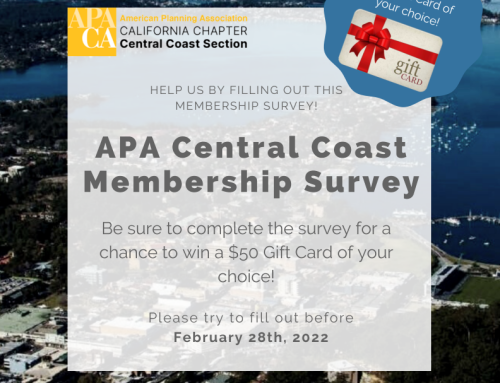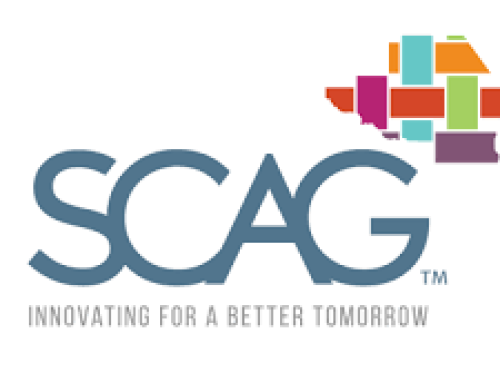New AICP members John Novi and AICP Candidate Tanner Shelton, share tips on how to pass the AICP exam. (original post dated February 10, 2019)
Advice from John Novi, AICP
- I made flash cards of important court cases which helped. Not all the cases were in the cards but I at least studied them enough that I could eliminate incorrect answers quite easily.
- The history time line, the PA chapter study materials, and a summary of the green bible helped.
- One thing I never really found which would have helped was a good list of the people to know. I found a few but each list had new people and were missing others so it was difficult to study that.
- I enrolled in the planetizen course which had some good info and a discussion board, and the practice tests helped get you familiar with the style of the test.
- The test itself has a highlight feature and a strike through feature so you can highlight a portion of a question or eliminate incorrect answers while in the test. It took me about an hr 45 min to answer all 170 questions, then another 30 min to recheck all my flagged answers before submitting so I had plenty of time. I made sure to go slowly and carefully read the questions and you have to be confident in your answers. When I clicked submit I thought I had failed but it said I passed with a 61 so I did a lot better than I had expected and only changed 2 answers on checking my flagged questions.
- I’d recommend starting the studying early and keep ramping up the intensity as you get closer. I was in the planetizen course since February but did the majority of my studying in the 2-3 weeks leading up to the test so it was fresher.
- I met up with Tanner twice and we shared study materials but never really studied together which I think would have helped more. I was really hoping the group would have met more often so bounce things off each other and share resources so that weaker areas could be shored up.
- Don’t waste $15 on the chapter presidents study guide offered in the APA website, it wasn’t that much more useful than other stuff I found (I attached it anyways)
- I read the executive summaries/intro chapters to the PAS reports recommended on the APA’s AICP prep website under recommended readings
- There were questions about homelessness on the test which is emerging as a future area of concern for the APA most likely
- Know budgeting types (zero based, line item)
- Know how to organize public outreach and the different outreach methods (i.e. charette, delphi, less than 20% return on mail surveys)
- Know who wrote the important books like silent spring, how the other half lives
- Know who Daniel Burnham is
- Know the spirit of the court case, for example I had a question asking about penn station versus NYC and I had narrowed the answers down to: historic preservation serves a valid public purpose, or a planning commission can control aesthetics of a historically designated building. I ended up choosing the planning commission one since I determined that historic preservation as a public purpose police power was done under the Gettysburg ruling. But that is the type of question to expect where you may know the case, but you have to apply it knowing another case too.
- I didn’t have any dates I needed to know, but there were housing act questions which follow different dates.
- Read the spirit of the housing acts, I helped to remember them by the early ones in the 30s and 40s created, 50s and 60s enables, 70’s and beyond enacted. So earlier acts created things like FHA and HUD, middle acts gave them teeth to prevent discrimination, and later acts actually forced change and regulation. Made it a little easier to remember the date eras
- Read questions carefully, the word ‘except’ can sneak in unexpectedly
- Think like a municipal planner form a medium to small sized city in the mid-west, not Californian
- Bring a light sweater because the AC can kick on right above you and make you cold, distracting you
- Bring 2 forms of id and know that you can take a restroom break if needed, but the time keeps running
- You have to submit the test, then take a 15-question survey before you see the results so don’t worry if you don’t get the pass-fail screen right after clicking submit. Also, the email with the score break down comes about 5-10 minutes later that shows the score and how many questions from each section you got right
- Read the ethics code a few times, focusing on what we can and can’t do ethically. I had questions (can’t remember if it was practice or real test) that asked about the specific language in a part of the code, but there was some strange wording in one of the answers to give a hint it was the wrong one I needed to pick out
- Most questions have at least 1 answer that is obviously wrong, so you only need to pick from 3, sometimes 2 are obviously wrong making it even easier
- Stay calm and keep a positive mindset
Advice from Tanner Shelton, AICP Candidate
I would say that the experience went pretty well for me. The test taking center is not the most welcoming place, but once I got in the room and began going through the exam my nerves went away.
In terms of studying, my strategy was to focus as much as I could on things I knew were going to be on the test closer to the test date. For example, key legal cases, people/places, ethics, and fundamental theories, stuff that is more memorizing than reading/analysis. I focused on the areas of practice and more in-depth readings further out from the exam. I used several study guides that I gained from co-workers and other professionals. Most helpful materials were the Florida Study Links document put together by the Treasure Coast Section, the 2007 Pennsylvania Notes, and the Glossary of Planning Terms for AICP Candidates (2006) by Michael Waiczis. The AICP reading list was a helpful study starting point as well, especially for PAS reports relevant to the areas of practice. Also, I had a college friend who found a summary of the ‘Green Bible’, which had chapter outlines and condensed the book down into about 45ish pages. That was very helpful for explaining planning fundamentals as well.
I did not sign up for any sort of comprehensive study class or guide, so it was a challenge to stay on track sometimes. The best thing I did during the process was to make an excel “timesheet” that basically tracked my total hours studying and what percentage of time I was dedicating to each section of the exam. That was extremely critical in keeping me focused and well-rounded in terms of the materials I was reviewing. I also found the ‘Study Stack’ flashcards available in the Florida Links document VERY helpful, especially while cramming.


